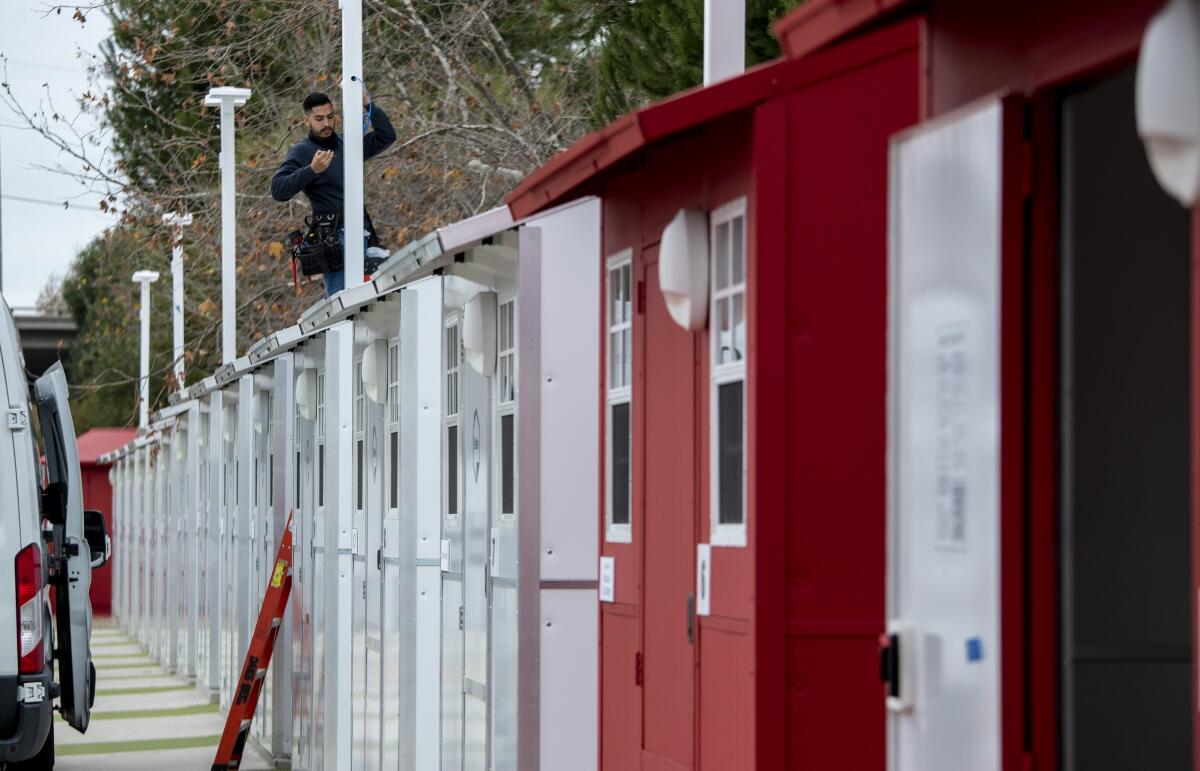Letters to the Editor: Ask homeless people why ‘tiny home’ villages don’t work

- Share via
To the editor: Seeing that Los Angeles mayoral candidates Karen Bass and Rick Caruso are providing some details about their plans for homelessness and housing, I’d like to ask them:
Have you made friends with homeless folks? Your tiny homes and shelters in warehouses will be just more visible signs that these people are not equal persons in this great city.
Have you stepped back to take a look at the tiny homes? They are unsustainable. One can tell by looking at them. Why are we using our beautiful land for these shacks where no one wants to live?
Why does no one want to live in them? Because living there is not really living. The rules are for no person. One’s time is not free. You cannot entertain visitors. Services are intermittent.
Makes a tent in the woods by a freeway seem attractive, doesn’t it?
Let’s get some real people who are homeless to make real plans to help our homeless citizens like real people. Can we please get a committee of them, with a small group of interfaith people to address ethical issues, and ask what they believe will help?
Dave Saltzman, Los Angeles
The writer is a chaplain with Church of Hearts Los Angeles, which serves unhoused people.
..
To the editor: There really doesn’t seem to be a conflict between Bass and Caruso. In the case of affordable housing, particularly housing for homeless people, it’s all of the above.
But beyond the strategies mentioned by the candidates, there are several areas where Los Angeles has been laggard in using its community resources. Given the wealth based here, from tech to athletes to entertainment, the city leadership should be leveraging this investment potential to make affordable housing finance tools such as tax credits and bonds more efficient.
With the strong housing market and the desire to build and develop, the city should be expanding its inclusionary housing requirements. Developers will be able to take into account such requirements, along with the strong potential market rents, when acquiring sites.
As for other places in L.A. County, it’s important to remember the suburbs need to be players, not barriers, in expanding affordable housing.
David Perel, Los Angeles





